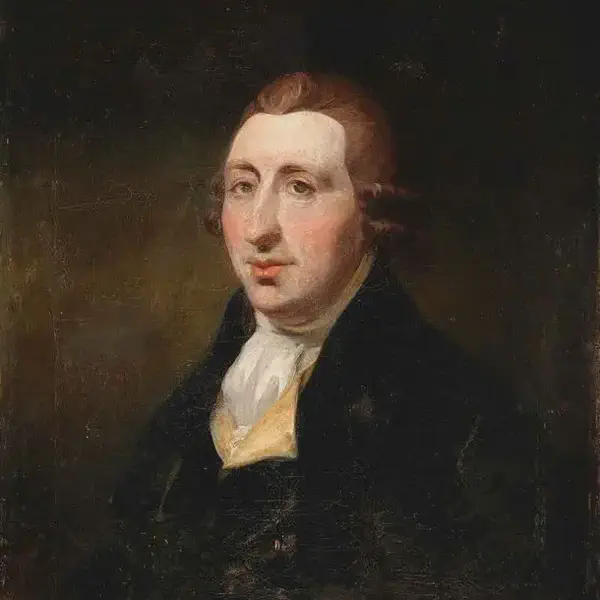
James Napper Tandy Leading Radicals Asks for Parliamentary Reform for Ireland
Bagpiper
James Napper Tandy (February 1739 Dublin – 24 August 1803 Bordeaux, France), known as Napper Tandy, was an Irish revolutionary and a founder of the United Irishmen.
In the early 1780’s Tandy was an artillery commander in the Irish Volunteers, and in 1791 he helped to form a Dublin branch of the radical Society of United Irishmen. Forced into exile in 1793, he made his way to Philadelphia in 1795 and to Paris in 1798, when the French government made him a general and sent him back to Ireland to raise an army against the British.
Irish Rebellion 1798
On Sept. 16, 1798, he landed at Rutland Island, off the Donegal coast, but abandoned the venture the same day. While returning circuitously to France, he was captured in Hamburg (November 1798), turned over to the British (September 1799), and, at a trial in Ireland, was sentenced to death (April 1800). He was released unconditionally, however, at the demand of Napoleon Bonaparte, and went (March 1802) to Bordeaux to live.
Wearing of the Green - (still a very popular Bagpipe Tune !)
Napper Tandy was a popular hero who was memorialized in the Irish ballad “The Wearing of the Green”
I met with Napper Tandy, And he took me by the hand, And he said “How’s poor old Ireland, And how does she stand?”
Irish Volunteers
The American Revolution had an impact on Ireland and contributed to the formation of the Irish Volunteers. The news of France’s alliance with the United States in 1778 heightened tensions in Ireland, as many feared that France might attempt to invade the country, taking advantage of the distraction caused by the American conflict. This fear was particularly strong among the Protestant population.
In response to this perceived threat, tens of thousands of Protestant volunteers, including landholders, lawyers, and craftsmen, rallied to form a militia force known as the Irish Volunteers. The Irish Volunteers were initially formed for the purpose of defending Ireland against the threat of foreign invasion. However, over time, the movement evolved and became associated with broader demands for political reform and increased autonomy for Ireland.
The Irish Volunteers played a role in shaping the political landscape of Ireland during this period. They advocated for parliamentary reform, greater independence for Ireland, and the relaxation of discriminatory laws against Catholics. The movement marked a significant moment in the history of Irish nationalism and set the stage for later developments, including the United Irishmen’s rebellion in 1798.
Society of United Irishmen - 1791
Society of United Irishmen, Irish political organization formed in October 1791 by Theobald Wolfe Tone, James Napper Tandy, and Thomas Russell to achieve Roman Catholic emancipation and (with Protestant cooperation) parliamentary reform. They were a pivotal Irish political organization with the goal of achieving Roman Catholic emancipation and parliamentary reform. The founders envisioned a united front that brought together Irish nationalists from both the Catholic and Protestant communities.
The primary objectives of the United Irishmen included:
Catholic Emancipation
The society sought to address the discrimination against Catholics, who were subject to various legal and social restrictions. They advocated for equal rights and full emancipation for Catholics.
Parliamentary Reform
The United Irishmen called for reform in the Irish Parliament to address issues such as corruption, lack of representation, and the dominance of a Protestant ascendancy. They aimed for a more inclusive and representative political system.
National Unity
One of the distinctive features of the United Irishmen was their emphasis on unity between Catholics and Protestants. The founders believed that a united Ireland, irrespective of religious differences, could better address the grievances and aspirations of the Irish people.
Over time, the movement’s goals evolved, and some members began to advocate for complete independence from British rule. However, the society faced challenges, internal divisions, and government suppression. The United Irishmen became particularly active during the 1798 Rebellion, a failed uprising against British rule in Ireland.